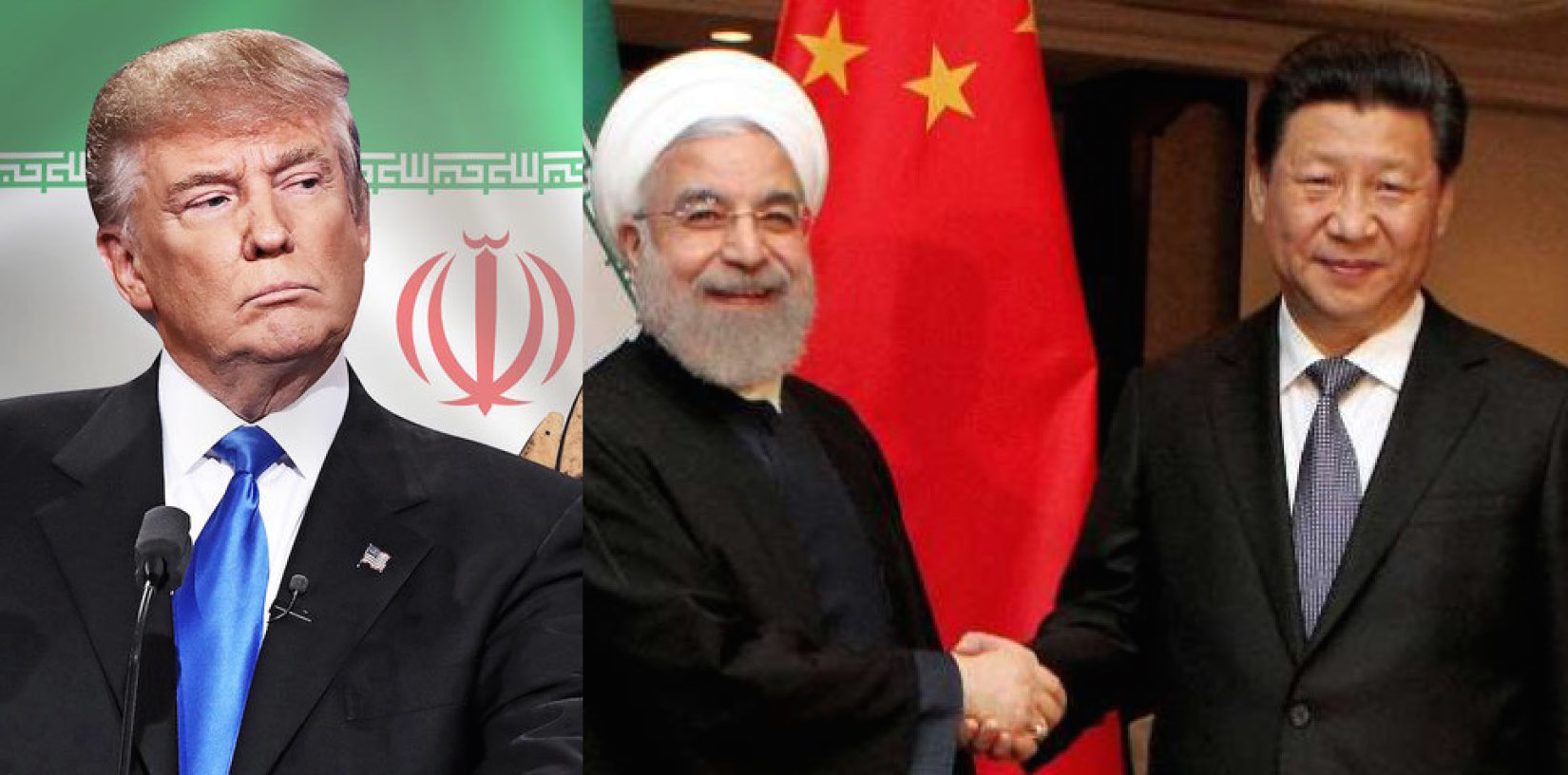Weekly Briefing: Google gives up on China, but not really; ‘foreign masters’ at Chinese universities; VR for your health


Hello, readers! The China Project Weekly Briefing is our newest feature, detailing the most important China news from the past week. It also comes in the form of a newsletter — sign up using the box at the top of our homepage.
~
If you’re in Hong Kong, please stay safe. Organized groups of thugs attacked protestors and bystanders on Sunday, July 21, leaving 45 injured — the most violent day after nearly a month and a half of demonstrations. We have a roundup of these disturbing events on The China Project. Subscribe to The China Project Access to get ongoing timely updates and perspectives on the future of Hong Kong.
—The Editors
1. Google gives up on China, but not really

Photo credit: ImagineChina / AP
WHAT HAPPENED
- Google has “terminated” its censored search engine project for the Chinese market, according to company executive Karan Bhatia, BuzzFeed News reported.
- Project “Dragonfly,” as it was codenamed, was first revealed in leaked documents 11 months ago.
- The software would have complied with strict internet regulations in China, where politically sensitive keywords are filtered, and hundreds of major foreign websites are blocked outright under what is known as the “Great Firewall.”
- Many opposed the project, primarily because it would have legitimized China’s censorship regime.
- Some also supported Google’s interest — and indisputed ability — in greatly enhancing the information-finding tools available to Chinese people. It’s not controversial to say that search engine options in China are less than ideal right now, and that it’s not just the fault of censorship.
PETER THIEL SEES YELLOW PERIL AT GOOGLE
Project Dragonfly has made it easy for American conservatives to criticize Google as too close to Beijing — especially since Google decided to not renew a contract with the U.S. Department of Defense.
The Trump-supporting billionaire and Facebook investor Peter Thiel spoke to a gathering of self-described conservatives in Washington, D.C., on July 14. Without presenting any evidence, Thiel suggested that Chinese spies had infiltrated Google. Fox News picked up Thiel’s remarks, leading to a Donald Trump tweet promising to “take a look.”
This is yet another inflammatory insinuation that will make life a little more stressful for engineers and scientists at American companies, and a new one for our Sinophobia Tracker.
WHAT GOOGLE ACTUALLY DOES IN CHINA
Google never really left China, despite making a big splash in 2010 by announcing that it was “pulling out” of the country. A blog post from that time indicates that while concerns about censorship were raised, the primary impetus for the pullout was intellectual property theft.
Google did shut down its China-based search engine in 2010, but today it still works in five primary areas in China, according to CNBC:
- Artificial intelligence research
- Cloud computing
- Hardware construction
- App development
- Advertising
2. Shanghai gets serious about garbage sorting and recycling

Photo credit: The China Project illustration
SCRAP COLLECTING IN SHANGHAI
Recycling in China relies on an informal network of solo garbage collectors who sort through piles of urban waste unsystematically. Until now, practically no one in China sorted their own garbage.
But as of July 1, Shanghai residents, companies, and apartment complexes all have to sort their waste. The program, outlined here (in Chinese), calls for all domestic garbage to be sorted into these categories:
- Recyclable, including paper, plastics, glass, scrap metal, fabric
- Hazardous, such as batteries, light bulbs, medicines, paint
- Perishable — food waste and Chinese medicine dregs
- Dry — anything that is not recyclable, hazardous, or perishable
Fines of up to 100,000 yuan ($14,500) are listed for companies and government organizations that contravene certain rules. There are no fines listed for individuals or households.
GLOBAL IMPLICATIONS
Adam Minter, a writer at Bloomberg and author of Junkyard Planet: Travels in the Billion-Dollar Trash Trade, argues that Shanghai’s new program is an essential test case for the future of waste management. He says (porous paywall):
As of 2018, humans were on track to generate waste at more than double the rate of population growth through 2050, with most of the growth coming in developing countries. Whether or not those nations can establish formal recycling systems will be crucial to managing the world’s trash and minimizing its environmental consequences. China’s experience will be a first, critical test.
3. ‘Foreign masters’ at Chinese universities

Photo credit: The China Project illustration
INEQUALITY ON CHINESE CAMPUSES
For years, it has been status quo for foreign students at Chinese universities to:
- Get in much easier than local students, and have looser requirements in classes,
- Live in better facilities, and
- Have dedicated services to help them integrate on campus.
Foreign students have had it so good, in fact, that it is fairly common for Chinese students to call them “foreign masters” (洋大人 yáng dàren) behind their backs.
That might be starting to change now because of a controversy at Shandong University and new Education Ministry policies.
A “STUDY-BUDDY” PROGRAM GONE WRONG
As reported on The China Project, Shandong University is in trouble for a “study buddy” program presented as a way to promote “academic cooperation” between foreign and local students.
- The scheme began in 2016, but this year, according to registration forms leaked on the internet, the previous one-to-one relationship has transformed into groups, where one foreign student is equipped with three Chinese volunteers.
- The registration forms required applicants to choose either male or female as their “study partners” and indicate if their motivations include “making foreign friends of the opposite sex.”
None of this was a good look for Shandong University. Internet users pointed out that the forms looked like information sheets given out by matchmaking agencies. Foreign students who signed up were predominantly male while the vast majority of Chinese volunteers were female, based on other documents leaked online.
But the reaction to this was also pretty ugly: Female students at Shandong University were subject to “slut shaming,” according to essays by local students translated at China Digital Times. There were also racist attacks against foreign students who were not white, and according to one student, many “dumbasses trying to self-promote” by video blogging about the controversy from campus.
NEW POLICIES FOR “NEARLY THE SAME” TREATMENT
Following the Shandong University case and other instances of complaints about preferential treatment of foreign students, the Chinese Ministry of Education clarified its position at a press conference last week. The Ministry announced that it would make further efforts to make sure management and services for Chinese students and overseas students studying in China are “nearly the same” but not “totally identical” given that foreign students come from a different cultural background. For more, click here.
4. One million Chinese tourists in Iran?

Photo credit: Kalika News
Iran’s economy is shrinking, rapidly. The country’s GDP shrunk by 3.9 percent in 2018, and is estimated by the International Monetary Fund to contract by 6 percent this year. Much of this is due to sanctions from the U.S., which have ramped up since the Trump administration decided to unilaterally pull out of the 2015 Joint Comprehensive Plan of Action (JCPOA) — a.k.a. The Iran Deal.
Tehran thinks it has a solution: Chinese tourism. The South China Morning Post reports that “the Iranian government’s new visa waiver program for Chinese visitors — first announced in June — could be implemented as early as the end of this month.”
- Iran want to “attract one million Chinese in the near future,” Vali Teymouri, Iran’s deputy director for tourism affairs, said.
- That would be a massive increase from only 52,000 last year.
- Tourism is important to Iran’s economy, contributing 7 percent of GDP in 2017.
China has no problem with closer relations and trade with Iran, no matter what the U.S. says, as these recent stories show:
- June 2019 — China is buying Iranian LPG despite sanctions, ship-tracking shows / Bloomberg (porous paywall)
- April 2019 — China buys a lot of Iranian oil, and it’s not happy at all with US sanctions / CNN
5. Can virtual reality treat China’s mental health problems?

Photo credit: arpost.co
More than 16 percent of Chinese adults have experienced a mental health illness — such as depression, anxiety, or alcohol or drug-use disorders — at some point in their lives, according to a first-of-its-kind national survey released early this year. Yet the healthcare system in China is very ill equipped to deal with the rising rates of mental health problems.
The Scientific American reports on an interesting trend in the application of technology to address mental health in China:
Virtual reality is touted as having the potential to transform how doctors diagnose and treat a number of mental illnesses, and the front lines of this revolution may be forming in China.
Cognitive Leap, an international VR company that focuses on mental health, specifically concentrates on this issue. The company’s CEO Jack Chen says the limited number of mental health providers in China — combined with a history of viewing some mentally ill people as criminals — exacerbates a situation in which trust is low and stigma is high. Technology, on the other hand, enjoys a greater level of confidence. “The VR system is viewed as very scientific and has zero stigma,” Chen says. “It’s such a pleasant and fun thing to do.”
MORE SCIENTIFIC INNOVATIONS IN CHINA
We find that there’s always a steady stream of positive news about scientific progress in China. Two examples from the last week:
- Scientists at Peking University have developed a gene-editing technique that, they say, greatly improves on the current industry standard of CRISPR-Cas13. See Caixin for more (paywall).
- Researchers have nearly eradicated an invasive mosquito species from two islands in Guangzhou, Nature reports. The Atlantic has a good article on related issues: China leads the fight against malaria in Kenya.
~
The China Project Weekly Briefing is sent as a newsletter every week — subscribe by entering your email into the box at the top of our homepage. To get daily roundups of China news, access to a members-only Slack channel and exclusive expert chats, and discounts on other The China Project events and products, sign up for The China Project Access today!





